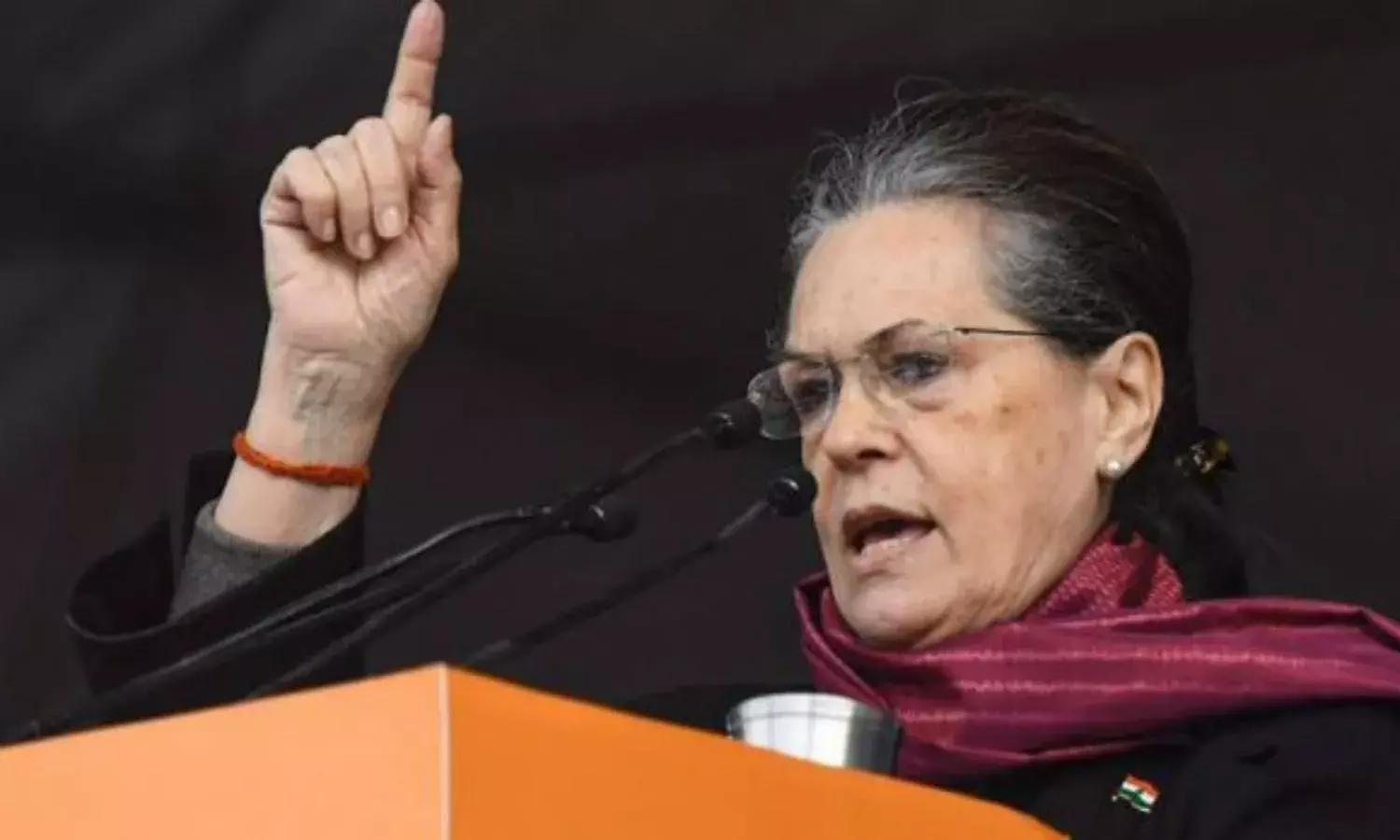Congress Needs to Give Up Its ‘Me First’ Approach for Opposition Parleys to Succeed
Sonia Gandhi holds opposition meet

Congress leader Sonia Gandhi, followed up or should one say countered Kapil Sibal’s opposition meeting, with one of her own. She did a little better than Rahul Gandhi who had started the process, in that 19 political parties as against 15, and top leaders of some of these parties, attended her meeting. Chief Ministers M.K.Stalin, Mamata Banerjee, Hemant Soren, Uddhav Thackeray attended giving the meeting some heft.
Nationalist Congress Party leader Sharad Pawar and CPI(M) general secretary Sitaram Yechury were present. Lalu Yadav did not attend, but his son Tejaswi Yadav did the honours for the Rashtriya Janata Dal. All talked unity. Mamata Banerjee was perhaps the most vocal in pointing out that all political parties should attend, even those who are not allied with the Congress party. The million dollar issue.
And reflected as such in the absence of Uttar Pradesh from this meeting. Samajwadi party leader Akhilesh Yadav stayed away as did his UP ally Jayanta Chaudhry heading the Rashtriya Lok Dal. The two have made it clear that they will contest the forthcoming Assembly elections in UP without the Congress. However, they were present at the G-23 meeting of opposition parties hosted just a short while ago by Sibal so clearly the issue is more about the Congress first Family, than the party per se.
Not surprisingly, Aam Aadmi party and chief minister Arvind Kejriwal also stayed away from the meet, although again he was present at the Sibal hosted confabulations. As did the Biju Janata Dal whose chief Naveen Patnaik has been pretty steadfast in maintaining a distance from the Congress Family.
Bahujan Samaj party chief Mayawati was not present, as she has not been invited by the opposition parties for such parleys , seen as a BJP ally now. Her fate seems to be on the Nitish Kumar trajectory, worse actually as he was elected and remains the chief minister while she seems set on going into oblivion.
So what does all this mean? It is clear that all opposition parties across India are in a mood for unity against the Bharatiya Janata Party. They are hosting and attending meetings to discuss this possibility, with a decided effort to smoothen the rough ride. Sharad Pawar made this clear when he said after this meeting, "Those who believe in democracy and secularism and those who want to save the democratic principles of our country, they should come together. That's my call."
Thats the positive. The negative arises really from the Congress party top brass that is clearly not in a mood to recognise the signals, and admit that its insistence on being the top negotiators is coming in the way of effective opposition unity. The Congress, under the Nehru-Gandhi family, is seen as grasping and not accommodating by the opposition parties who have often had to relinquish more seats to the Congress, than it deserves in their respective states. All in a bid for alliances and unity that has cost them dear, particularly in states like UP and Bihar where the Congress presence is negligible and where this party has always demanded more than it's worth.
Regional leaders pointed out at earlier meetings ---it was probably not raised in Sonia Gandhi’s presence ---that the Congress should learn to sit on the back seat in states where the regional parties hold sway. Like UP, Bihar, West Bengal, Orissa. And fight with full force and focus in those states where it is in direct confrontation with the BJP as in Rajasthan, Madhya Pradesh, Gujarat and such.
If the Nehru-Gandhi family are able to accept this principle as a coalition code the resistance to them will reduce, and the regional parties will have little problem with a broader alliance with the Congress. Most admit privately that opposition unity today needs the Congress to be effective in the field. But at the same time, as the G-23 has shown with the political gauntlet it threw into the arena earlier this month, there can be a Congress of sorts without the Nehru-Gandhi family. Not every regional party has bought this of course, but many will be prepared to work with it if Sonia and Rahul Gandhi do not accept the basic demand of seat adjustments according to the formula above.
Of course there are others ---including Akhilesh Yadav ---who feel that the Congress should contest separately instead of in a broad alliance with the opposition parties as it could cut into the BJPs traditional vote bank in some constituencies at least. And this is also one of the reasons he has cited privately as his decision not to contest the UP state elections in close coordination with the Congress. However, for this strategy to work there has to be some level of consultation for the Congress with its poor organisation and few seats in UP, to contest only those where it will help the regional combine over and above the BJP. Some others also share this view saying that a large opposition alliance will strengthen and not weaken the BJP.
Suffice it to say at this moment, that the Nehru-Gandhi family needs to give up its arrogance, understand and respect the Opposition, and drop its immature ‘me first’ approach for a larger coordination with all.



